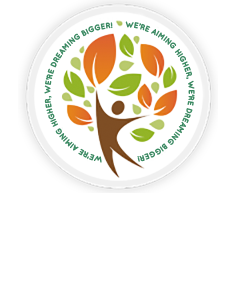Geography
Geography
The geography curriculum at Malorees School seeks to give pupils a solid foundation in and broad overview of some of the most important factors that affect the world we live in, as well as helping them to develop a comprehensive understanding of ‘place’. The curriculum gives pupils a strong grounding in world geography and provides them with the opportunity to compare the local area to settlements within the UK and beyond. While studying these periods, the units explore themes of environmental change, human impact on the world and natural phenomena.
We use the Rising Stars schemes of work in KS2 to ensure progression within our geography curriculum is clear: starting with what is familiar to children and extending outwards. Progression in fieldwork skills is built across units and offers rich opportunities for mapping, technical drawing and exploring the environment in a concrete, physical way. Other units offer scope for pupils to use digital resources, globes, atlases, and Geographical Information Systems to explore regions. Key technical vocabulary is mapped onto each unit, allowing children to build a rich bank of geographical language.
In Early Years, activities are planned to help children make sense of their physical world and community through topics that are inspiring and aim to develop children’s natural curiosity.
In KS1, skills are further developed to recognise, describe, explain, compare, and evaluate human and physical geographical elements, with a high level of technical vocabulary being accurately used and applied.
Our curriculum is deliberately ambitious. It challenges pupils to make connections across place and time and sets them up for what we hope will be a life-long love and understanding of an important subject. At the same time, we endeavour to provide a foundation of understanding that will make them curious, active citizens of this country and of the world.
We also look to develop our children’s geographical skills by collecting and analysing data; using maps, globes, aerial photographs and digital mapping to name and identify countries, continents and oceans; and by communicating information in a variety of ways.
History
History
At Malorees School, our history curriculum seeks to give children a solid foundation in and broad overview of key historical periods, events and significant individuals so that they become aware of ‘the best that has been thought and said’.
At Foundation and Key Stage 1, learning begins with what is most familiar to children: looking at their own past and those of their families so they begin to make links between different generations. As children’s learning progresses, pupils will study key historical periods, such as The Great Fire of London. Children will use this knowledge to support them as they move into Key Stage 2.
Within Key Stage 2, children will learn about a comprehensive range of historical events to give them a strong grounding in British history, from the first settlements through Roman Britain, the Vikings, Anglo-Saxons, Medieval Britain and up to the impact of the Industrial Revolution. These units explore the themes of change and continuity, perspective and power.
We follow the Rising Stars scheme of work to ensure we are providing a progressive study of history. We also place a great deal of emphasis on revisiting key ideas and strands to extend and further develop pupils’ awareness and understanding of core historical values, aspects of life and trends throughout time. We are all passionate in ensuring that teaching across the whole school challenges pupils to think proactively through a progression of historical concepts and ideas.
Our history curriculum aims to help children understand how past events shape today’s world, by making comparisons and connections between different units and by examining the impact that history has had on life today. We aim to inspire children’s curiosity for history and challenge them to make connections across time and place to set them up for a life-long love of an important subject, helping them to become curious and active citizens.
- Special History Curriculum events
- Whole school diorama exhibition.
- Ancient Egyptians workshop.
- Ancient Greeks workshop.
- Trips to local museums.
- Outside speakers (International Women's Day).
- Dress up day.
Curriculum Overview
|
|
Autumn 1 |
Autumn 2 |
Spring 1 |
Spring 2 |
Summer 1 |
Summer 2 |
|
Humanities
|
Y1-Geography: Our Local Area |
Y1-History: My Family History |
Y1-Geography: People and their Communities |
Y1-History: The Greatest Explorers |
Y1-Geography: Animals and their Habitats |
Y1-History: Great Inventions – Transport |
|
Y2-Geography: Seasons |
Y2-History: Bonfire Night and the Great Fire of London |
Y2-Geography: Journeys – Food |
Y2-History: Holidays |
Y2-Geography: Our Wonderful World |
Y2-History: Our Local Heroes |
|
|
Y3-Geography: Climate and Weather |
Y3-History: The Stone Age |
Y3-Geography: Our World
|
Y3-History: The Bronze Age and the Iron Age |
Y3-Geography: Coasts
|
Y3 History: Local History |
|
|
Y4-Geography: The Americas |
Y4-History: The Ancient Egyptians |
Y4-Geography: Rivers and the Water Cycle |
Y4-History: Roman Britain |
Y4-Geography: Earthquakes and Volcanoes |
Y4-History: Crime and Punishment |
|
|
Y5-Geography: Changes in our Local Environment |
Y5-History: The Anglo-Saxons |
Y5-Geography: Europe – A Study of the Alpine Region |
Y5-History: The Vikings |
Y5-Geography: Journeys – Clothes |
Y5-History: Journeys |
|
|
Y6-Geography: South America – The Amazon |
Y6-History: The Maya Civilisation |
Y6-Geography: Global Warming and Climate Change |
Y6-History: The Ancient Greeks |
Y6-Geography: Our World in the Future |
Y6-History: The Impact of War |
